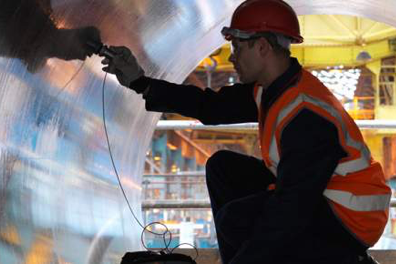How Can We Achieve Success In Managing Process Safety?


For many years, unexpected releases of toxic, reactive, or flammable liquids and gases in processes involving highly hazardous chemicals have been reported. Regardless of the industry, as long as the company is handling hazardous chemicals, there is always a potential for an accidental release at any point if processes are not well controlled.
Click here to see article on “Industrial Disasters & How are They Managed”
Click here to see article on “3 Industrial Accidents Caused by Human Error”
How can we achieve safety success?
- Leadership
In the process industry, the safety of the employees and the financial success of the firm is dependent on the leadership on process safety. Leaders are required to appropriately communicate the importance of process safety, establish the right and appropriate SOPs in the processes.
- Acquiring the right talent for the right job
A stringent hiring process for operators need to be implemented; on top of that, all employees should also be given training and education opportunities to ensure that their skills and knowledge will be updated and relevant to the company.
- Mechanical integrity (or asset integrity)
A typical process plant can operate for 3 – 4 years or longer between major turnarounds, hence the reliability of process equipment is of paramount importance. From piping to valves to control devices to major rotating machinery, should be paid careful attention to. Companies need employees who can understand corrosion or the complexities of rotating equipment to ensure that the plant and machines can operate efficiently.
- Taking note of the details
Process plants are complex, containing millions of parts and sophisticated electronic equipment and software. Key equipments should have backups so that one single failure will not cause a shutdown or process incident.
- Establish a track process safety metrics to monitor operations.
By developing metrics, you can track and monitor how the plant is operating. There are typically two forms of metrics – lagging metric and leading metric. Lagging metric records the number of reportable incidents and the number of times that a pressure relief valve activates. A leading metric records the activities in the plant that records a negative tendency.
- Taking the long view on potential risks
If there is a problem that occurred in a plant, and can be resolved by shutting down the process, the management ought to weigh the loss of production from a shutdown and the possibility of the customer who is against the ceasing of the production. Shutting down processes in view of problem may incur short-term consequences, but the delay in resolving the issue will potentially cause long-lasting impact for the company.
- Be well-prepared for the possibility of incident
It is important that the company has a first-class emergency response plan. Relevant personnel should be aware of the drills, and familiar with all the post-incident strategies. Management should work with the relevant personnel to develop an effective contingency plan, so that everybody will understand their roles and responsibilities.
- Thorough investigation all incidents
One should not underestimate the consequences a small event can cause. Relevant personnel should not only be well-trained in the techniques of incident investigation, but also should be able to find the root cause of an event.
- Avoid complacency
While every processes in your company is looking well, there is excellence in quality, and the plant is free of incidents and various process issues, management and operation personnel should not let down their guard and still continue to prioritise safety in their workplace.
- Develop a strong process culture in the company
To create a strong sense of process culture, the management ought to set themselves as examples that their employee can follow, such as, being attentive to safety details, and to do a regular review with relevant personnel, etc.
Techniques for Managing Process Safety is a 3-day course that aims to provide personnel with a comprehensive approach to manage process safety effectively. Participants will learn how to achieve safe and reliable operations for their companies in the oil & gas and chemical industries. For more information, please visit us at http://www.opuskinetic.com/training or contact us at info@opuskinetic.com
Opus Kinetic believes that people are why organisations are successful, and giving people the knowledge to perform well at their job is integral for success. We pride ourselves as the premier provider of knowledge, offering acclaimed in-house training, leadership training courses, oil and gas training courses, courses that target health safety and environment, etc. Our training courses are well researched and updated with the latest industry trends. For more information on our professional training programs, you can visit us at http://www.opuskinetic.com/training.
